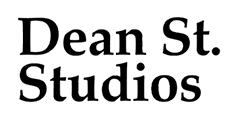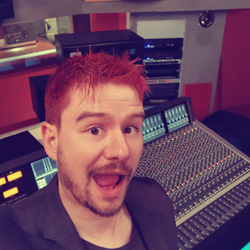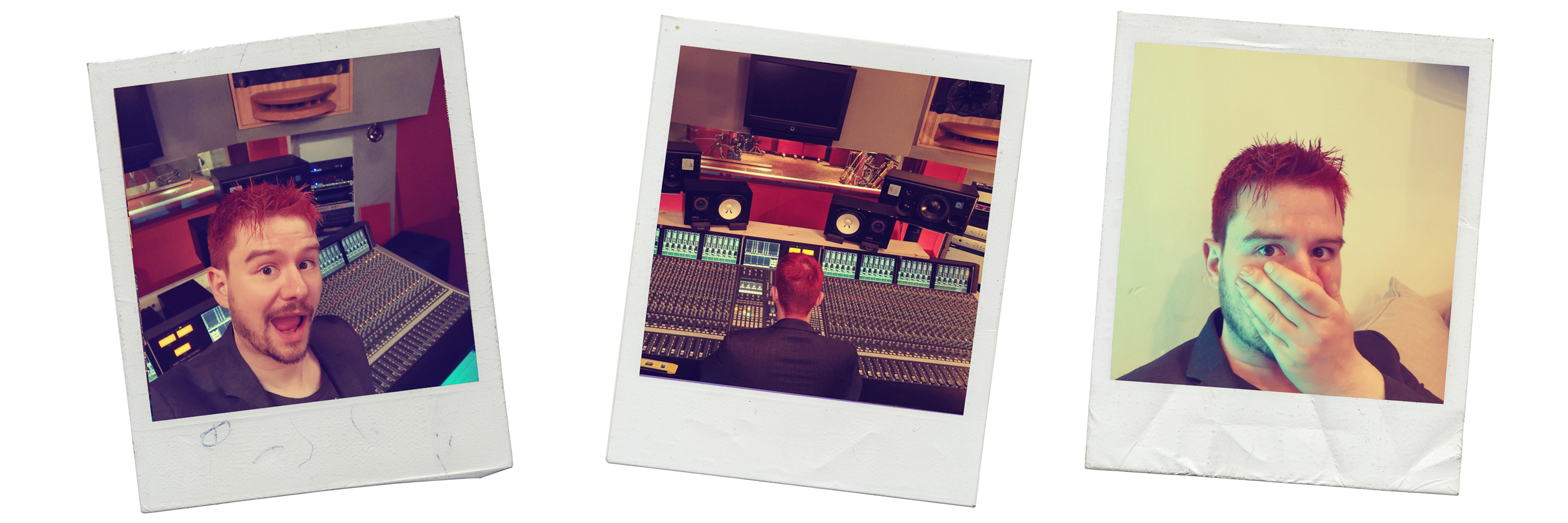
What is your role at Dean St. Studios and how long have you been there?
My role is primarily engineering client’s sessions in Studio 1, whether it be for recording, mixing or any other madness! I only started at Dean Street Studios about six months ago, but I’ve already been made to feel more welcome than anyone has right to – after a decade of freelancing I can’t explain how good it feels to have a base as strong as Dean St.
What first made you want to get into this kind of role?
Back in the mists of the early 2000’s when I was a teenager, digital music was only in it’s early pirate years. Napster would download one MP3 in a out three hours, and the internet was still in its infancy.As result Twitter, Instagram and other social networks weren’t there to constantly drip feed you information about your favourite acts and the best you got was a few interviews at the time of an album’s release and the liner notes in the CD. There was a certain mystery and allure to having no idea about the daily lives of your musical heroes besides what they told you in their lyrics and the few pages of print etc.
In the credits of the album you could start to recognise similar names coming up under the “Engineer” and “Producer” credits. A lot of the records I was buying has a similar aesthetic, and it turned out that wasn’t just down to the musicians themselves. Once I began reading online about these strange figures that were somehow allowed to help sculpt an album being made, things became clearer.
There was definitely this image of a group of people coming together under the roof of a studio, banding together like some pirate crew in search of musical fortune under the guidance of a producer who captains the whole mess. People like Alan Moulder or Flood became these semi-mythical album-whisperers and I knew I wanted to try getting even halfway there.
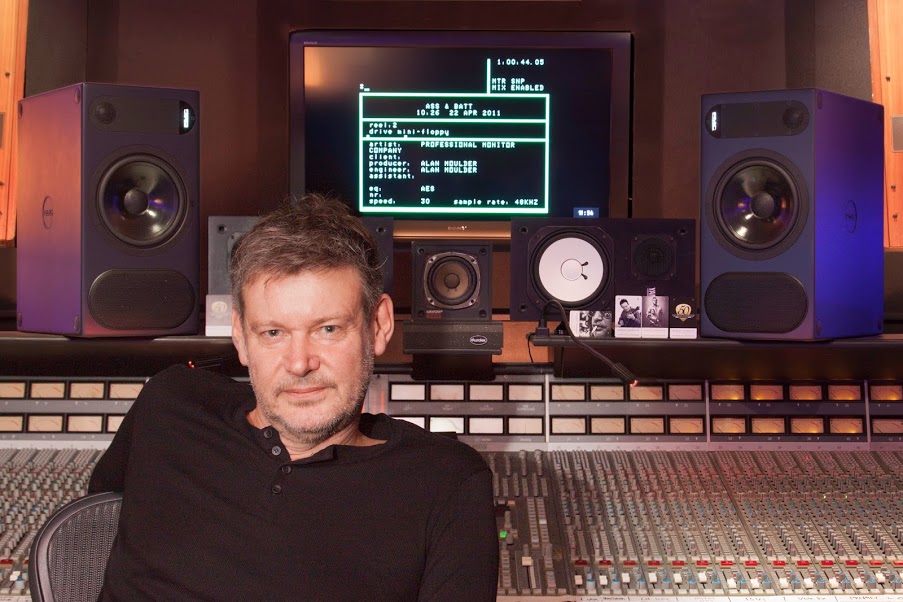
What were your first steps into the industry? And did you get a formal education in a related subject?
I did get a degree in Music Technology and all it really taught me is that educational establishments are predatory parasites that feed on the hopes and aspirations of the naive in order to turn a quick buck. You’ll start the course with your ears ringing with the empty promises they feed you – “99% of our graduates are employed, we have great facilities, the industry respects our course” – and you’ll invariably leave with the same employment prospects you went in with.
This was never an industry that was struggling to find employees, even before the industrialised machine of degree education starting churning out thousands of graduates per year. In the end I got my start by acknowledging on my CV that my previous education was something that would have to be un-taught, and that the preconceptions my education gave me were something I’d have to gladly throw away.
Every new hire at a studio has to come with album credits or a willingness to spend a few years taking out bins and fetching coffees. I didn’t need a degree to do those things, and often I now meet runners who think they’re months away from a Grammy award on their first day of work. The issue is that more education is rarely what a studio needs: often the areas that are most lacking – like enthusiasm and willingness – have understandably been exhausted by the time a student has graduated.
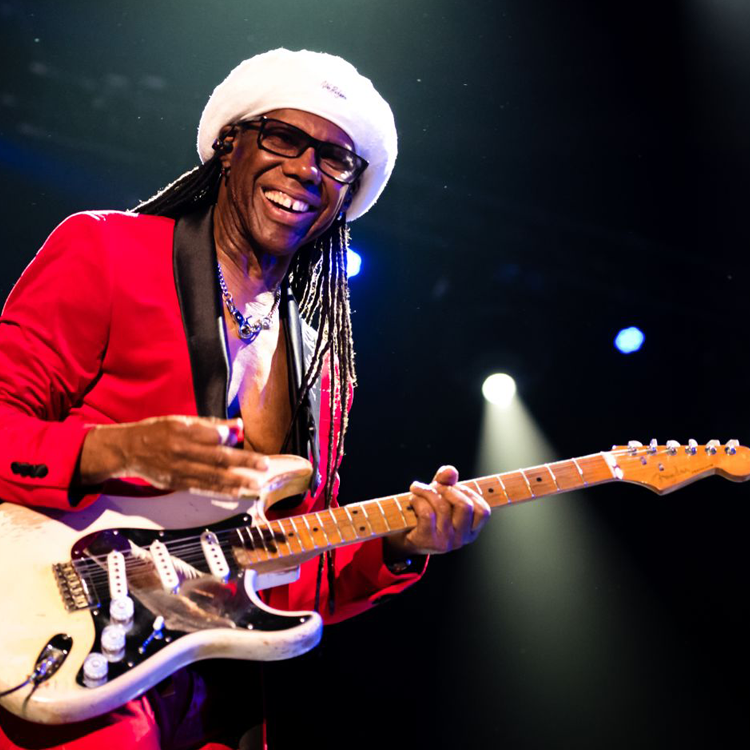
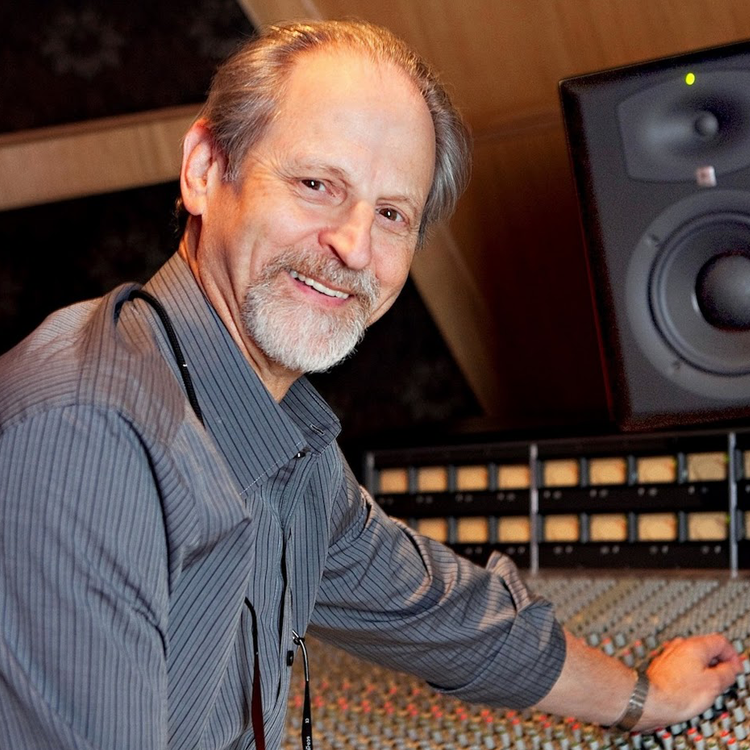
What have been your favourite or most memorable experiences in the industry so far? And in Dean St.?
Memorable experiences tend to clang around a little with the weight of the names being dropped, and favourites are usually a little easier at the expense of being less relatable – “you had to be there!”.
Sitting with Nile Rodgers (clang!) talking about producing Bowie or having a coffee with Eddie Kramer and talking about Jimi (clang!) were great moments that I’ll always feel privileged to have experienced. The same goes for the sessions engineering for acts like Jay Z etc. However if I’m honest my favourite moments are much less impressive at first glance than a big name client or studio legends. I think I’ll always value most those rare and exceedingly special moments where what came out of the speakers genuinely exceeded what we had in our heads before we hit record. In subjective fields like sound quality and music performance, it can be very easy to forever be chasing pride and never allowing yourself a moment of it – whether you’re a musician, engineer or producer you can usually always hear some tiny detail you’d change if you could. I have a memory bank of those few moments where the recording just blew past all of that and demanded attention and let pride slip through. And I don’t think anyone can deny that those are firm favourites.
Dean St has the sort of equipment and live room where I’ve already had my unfair share of moments like that, even in the short time I’ve been there. But I won’t say my favourite Dean St moment has been any of those particularly – more important to me is the team of wonderful people who all work pretty tirelessly to keep it magical. It’s been a while since I’ve been part of a team, and I don’t think I could have joined another that has the same drive for constant improvement as these guys do.
What artists have you worked with?
Well I was fortunate enough to get my start at RAK Studios, starting first as a runner and then quite quickly after that Chase & Status asked me to become their full time engineer. One of the many benefits working with a production duo of that calibre for so long was the revolving door of great vocal talent I was able to work with – sadly with just the way music works these days, after conflicting album schedules and campaigns much of it never sees the light of day!
In terms of notable artists, there’s nothing I’ve done that isn’t in my credits list already, but the laundry list of the great and good can be dry reading compared to the privilege of being there when these people are creating songs that hundreds of thousands of people go on to enjoy. It’s not the calibre of artist that makes a session like that special, it’s purely that the quality of their output is an amazing thing to witness happening in front of you. It’s rare I’ll have a session where I don’t feel the weight of that responsibility, and pinch myself a little!
In terms of notable tracks, there isn’t one I’ve worked on that I’ve forgotten – even if one or two of them I’d rather!
What are your goals for the future?
At some point it’d be good to win an arbitrary trophy. Or at least a pizza. Or a pizza trophy. I don’t see any reason why we can’t push Dean St to an MPG award in the coming years, especially considering everyone on this team is more than capable of batting right next to the big boys. I love that Dean Street isn’t as well known as it should be just yet – it feels like being privy to this awesome secret that the rest of the London industry doesn’t know about yet. I can really see this place going absolutely stratospheric in the next few years, and getting the chance to be part of that is just the most exciting thing.
Ten years freelancing gave me a wide experience of many things, but it can’t compare to the variety that comes through the door of a studio. I first knocked on the door here because I recognised that variety for the very special thing it is – in the last weeks I’ve recorded probably my most varied collection of genres, instruments and vocalists. Every session is another chance to gain a new skill or sharpen an existing one that I wouldn’t be able to get by working long-term on a specific project, not to mention show off a bit too!
Top 5 tracks that you wish you’d have worked on?
Now the temptation here is just to write a list of some of my favourite recordings, and I think I’ll completely fail to abstain from doing so. But it has to be tempered with the fact I learnt not too long ago; that the music I really love is often the product of a difficult birth, and having had experience of what those sessions take from the people involved in them I’m more than happy remaining in the audience for the next one or two.
For instance “Spirit Of Eden” by Talk Talk – I don’t think there’s much doubt that Phill Brown captured some of the most affectingly beautiful audio in the history of what we do. But if you read what he, the band, even the label had to go through to get that level of quality it’s a scary ride. There’s absolutely no doubt that the privilege of working on that music would be something I’d jump into with both hands and a massive grin, but two years sat in the dark not knowing what any of the songs were even that late in the process is a terrifying idea.
Favourite gig you’ve been to?
A band called “Melt Yourself Down” played the New Empowering Church in Hackney sometime in 2014 or so. They eventually released the gig as a live album, it’s available on Spotify.
Now this band are known to be fantastic live, and I’d never seen them before. The whole church venue was a little disconcerting, until I arrived and saw this ‘Church’ was literally a concrete warehouse with a stage. It’s absolutely packed, and the band get everyone going absolutely apeshit. Their tunes are a bizzarro mix of afrobeat, jazz, punk, and lord knows what else – but regardless of which of their many influences they’re leaning on each and every tune is a polyrhythmic beast. The frontman does most of his work from inside the audience, the saxophonist is on his back – crowdsurfing as he solos like a demon across the room carried by the audiences sweaty palms. They start their last song, I get up on the front of stage, looking back on the sea of hands ready to catch me and the circle of moshing bodies just behind them. My musical excitement in overdrive, I leap 100% of the way OVER the hands ready to catch me, directly into the empty moshpit, landing directly on the top of my head. The concrete splits my head open, and I end up in A&E getting my scalp glued back together. Best gig, hands down, ever.
